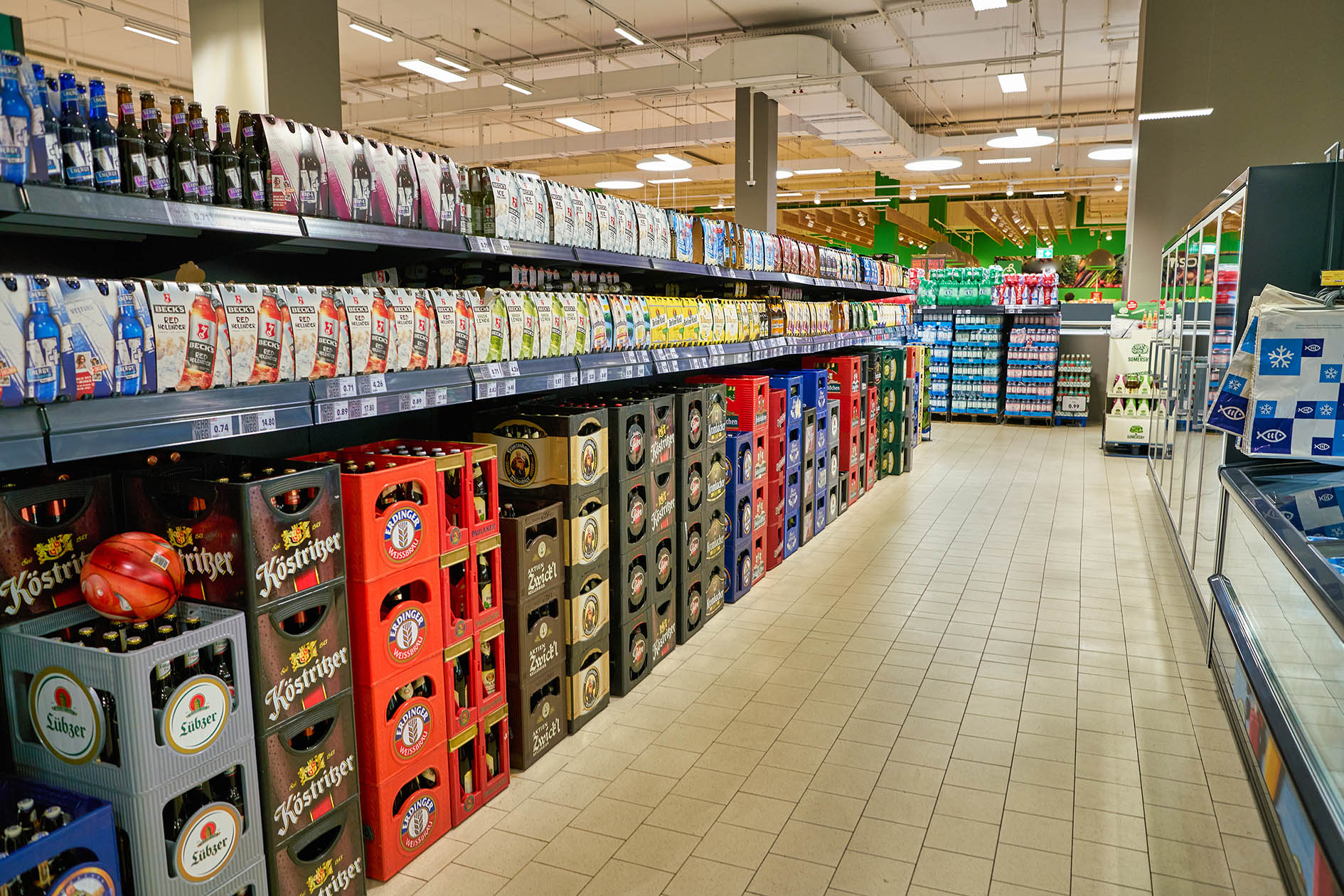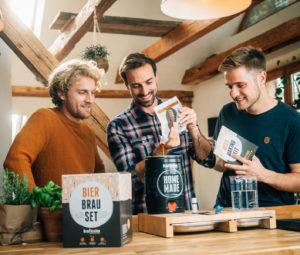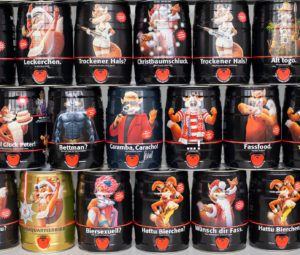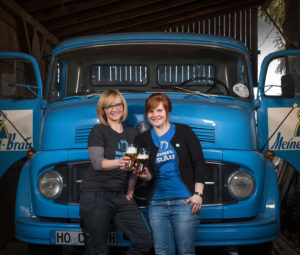Outside-the-home beverage consumption has decreased immensely due to COVID and especially during lockdown. Instead of going out to have a drink, Germans consumed more alcoholic beverages in the comfort of their own homes – and therefore frequented their local beverage stores more often. You can sum up the changes the beverage industry has seen during this past year by saying: beverage stores thrive thanks to COVID!
The Verband des Deutschen Getränke-Einzelhandels (VDGE) has recorded an above-average increase in sales for 2020. In contrast to beverage wholesalers, which serve the public gastronomy and therefore had huge decreases in sales due to COVID, the VDGE is able to present very positive sales figures: all 26 members were able to increase their sales compared to the year before by roughly 383,7 million Euros or 17,7 per cent. According to the association that is the highest turnover that has ever been achieved. But how come that especially beverage stores benefitted so significantly from COVID?
Beverage retailers are ahead of competition in terms of reusable packaging
One of the main reasons lies within reusable packaging: more and more consumers go for reusable containers instead of single-use plastic bottles. Glass bottles are number one among the reusable containers. The Wirtschaftsvereinigung Alkoholfreie Getränke (wafg) states that the share of reusable containers for non-alcoholic beverages within household consumption was increasing in 2020 according to surveys performed by GfK Consumer Panel FMCG. That means, that the trend for increasing market shares of reusable containers for non-alcoholic beverages continues on the basis of GfK data (2020: 25,6 per cent, 2019: 24,2 per cent). Therefore, the share of single-use containers is declining (2020: 74,4 per cent, 2019: 75,8 per cent). One remaining bastion for reusable bottles is the beer industry: according to a survey performed by the Umweltbundesamt the share of reusable beer containers within domestic consumption was as high as 79.5 per cent in 2018 (= the latest available data). This trend for recycling within the beverage industry made for a huge increase in sales for beverage retailers that work with reusable containers.
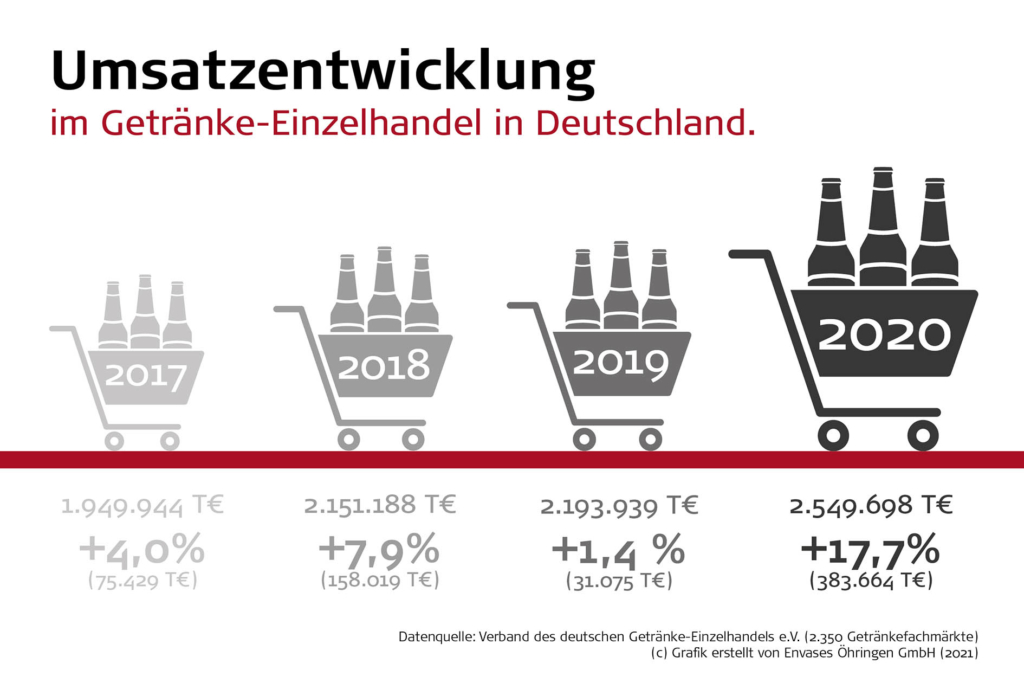
Shopping safely and quickly: beverage retailers thrive thanks to COVID
Another aspect why beverage retailers thrive thanks to COVID: these stores used to be less crowded than supermarkets and other grocery stores during the pandemic. Therefore, the customers felt safer and more comfortable to go there. Beverage stores tend to offer more space than regular grocery stores. Besides, thanks to smartly set up tracks through the store the shopping experience is quicker and safer. The VDGE plans on exploiting these advantages even more after the crisis and advertise them in a national image campaign “pro beverage store”.

Georg Gorki, industry expert
Closed pubs and restaurants = more beer consumption at home. This simple equation sums up perfectly the past few months. Especially the beer consumption within the comfort of people’s own homes has increased significantly during COVID. This is a general trend identified by industry expert Georg Gorki, who has held leading sales positions within the beverage industry for the past 25 years. But there were regional differences according to Gorki: in the South bottled beer was clearly number one. In the North and in the East, however, there was a huge increase in sales of sparkling wine and spirits. „Furthermore, consumers were looking specifically for local specialties and more open to try something new“, states Gorki. He is not surprised by the fact that consumers turned more towards the MiniKEG and draftbeer@home during COVID. „Although the party kegs tend to sell more easily in supermarkets and discount stores – in beverage markets people focus more on reusable containers“, says the expert who has worked many years as a manager for local retailers in the beverage industry himself.
Trend towards „experience markets“: beverage retailers explore new paths
Gorki does not see the reason behind the positive situation of the beverage industry as a snapshot of a „COVID moment“, but as part of a long-term positive trend. There has been a revolution going on within the beverage retail industry for the past several years. The little backstreet stores that used to serve as beverage storages and retail locations where the assortment was simply decided by the owner’s gut instinct, are a story of the past. “There is a huge trend towards appealing „experience markets“ that offer a feel-good atmosphere as well as a wide selection to their customers”, explains Gorki. They use elaborate merchandise management systems and efficient logistics. That is how to make a difference compared to traditional retail spaces and offer added value to the customers. Georg Gorki is quite optimistic: “This positive development of the past four or five years has provided a lot of tailwinds to beverage retailers. I am certain that this trend will continue – even after COVID.”
The Verband des Deutschen Getränke-Einzelhandels e.V. (VDGE) represents the interests of roughly 2.350 and therefore almost 30 per cent of approximately 8000 beverage stores in Germany. The medium-sized members with strong roots in their local areas generated more than 2.55 billion Euros in turnover per year and therefore roughly 45 per cent of the overall turnover of all beverage stores.
Georg Gorki is one of the most esteemed beverage buyers in the industry. He has worked for Bündig, Tegut and KaDeWe and became beer buyer for Lidl in 1998. Later, he switched to Kaufland, and for a certain period he steered Kaufland Romania. Since 2018 the beverage manager works for Radeberger Group, where he was purchasing manager of Getränke Hoffmann for two and a half years. Since May 1st 2021, he is a spokesperson for the management board at Beveco – one of the biggest sales platforms for beverage cash-and-carry chains.
cover picture: Adobe Stock, Heorshe
